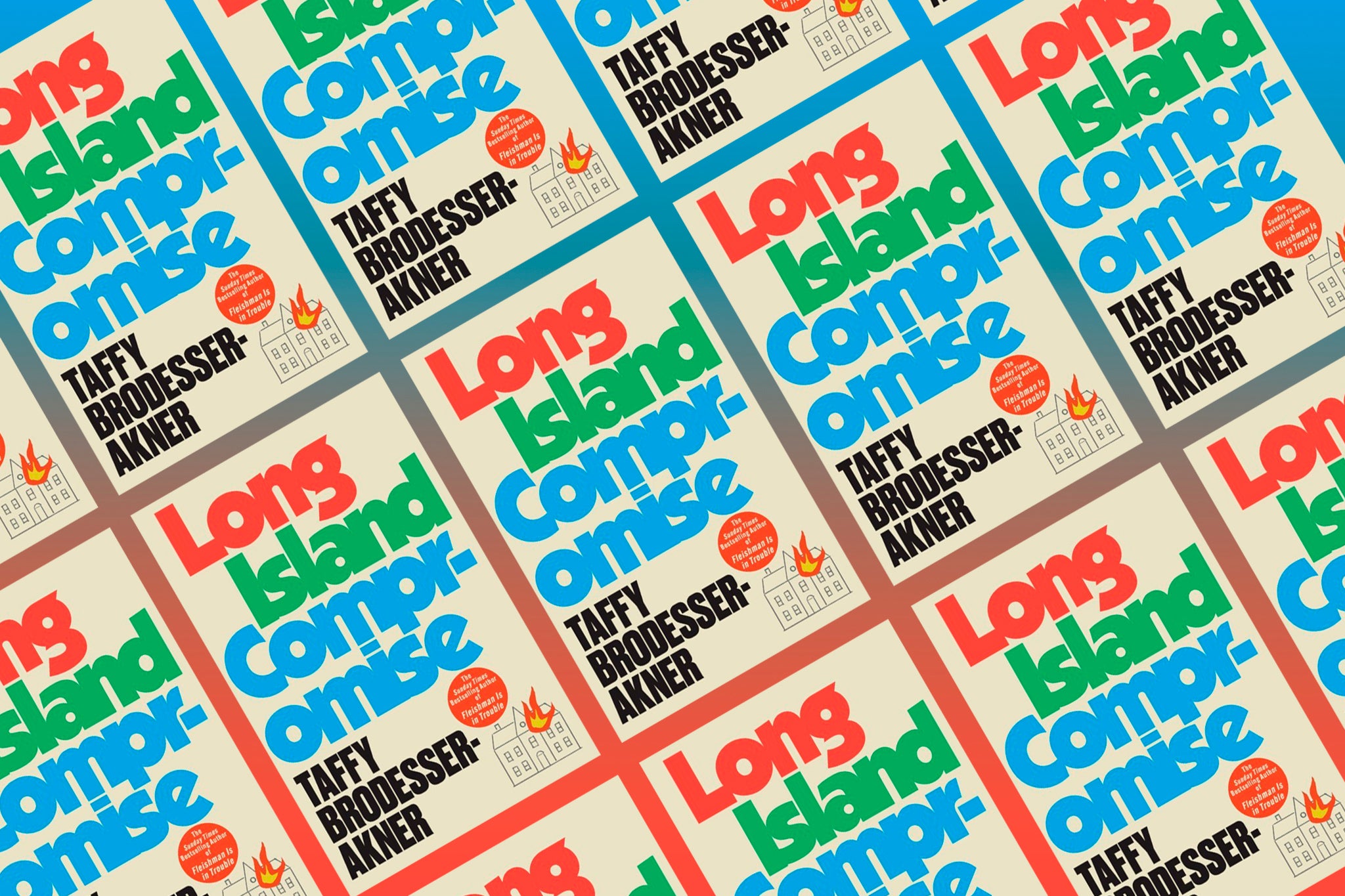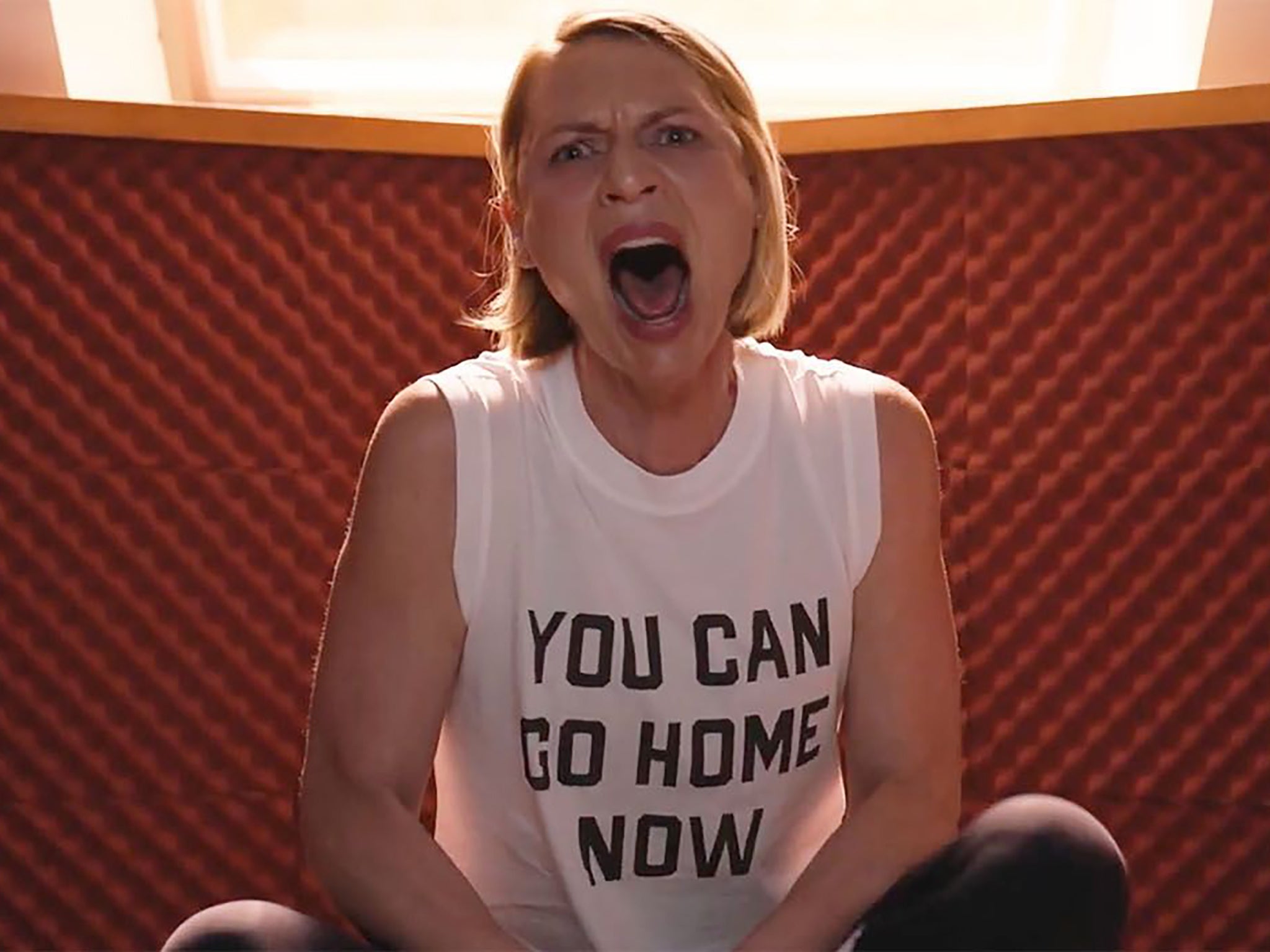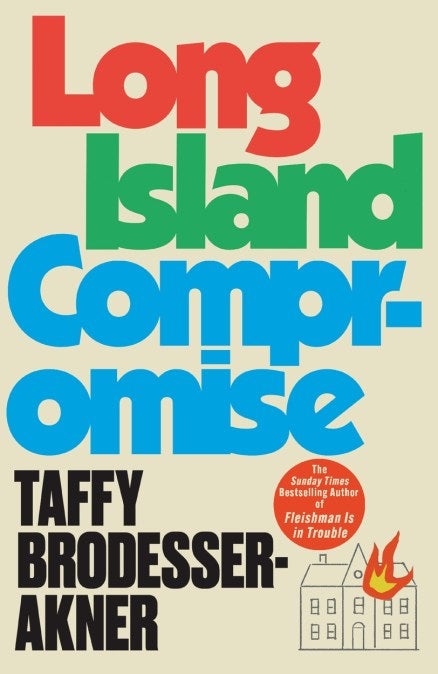Are authors now writing for TV producers rather than readers?
The new novel from Taffy Brodesser-Akner has all the makings of a great TV show, so it’s no wonder an adaptation is already in the works. Is the entertainment industry’s enthusiasm for snapping up novels having an impact on writers, asks Katie Rosseinsky


The first few pages of Long Island Compromise, the second book by Taffy Brodesser-Akner, have all the tension and intrigue of a gripping opening sequence to a TV show. It’s March 1980. Carl Fletcher is the owner of a pollution-spewing polystyrene factory established by his Holocaust survivor father. It has made the Fletchers “extraordinarily, absurdly” rich, even in the prosperous Long Island neighbourhood of Middle Rock. Carl strides down his drive, ready for another day at work. Until, that is, his world fades to black as he is bundled into his car by two kidnappers, who imprison him in a cupboard for days while attempting to extract ransom money from his wife. Flash forward three decades or so, and the aftershocks of this event will “play out riotously in the soul and on the body” of the Fletchers and their three children in the decades to come. It’s certainly an unenviable inheritance.
This book, then, has a recent period setting that will look great on screen (all those fancy seafront houses packed with Eighties paraphernalia). There’s a gripping kidnap plot, based on a real-life case (Brodesser-Akner was inspired by the 1974 abduction of Jack Teich, a friend of her father’s; his abductors demanded $750,000 (£578,700), the highest-ever ransom in the US at the time). There’s also a vast amount of wealth being thrown around and plenty of inherited trauma for a trio of very different siblings to attempt to work through (ringing any Succession-shaped bells?)
Brodesser-Akner’s hit 2019 debut Fleishman Is in Trouble, a brilliantly observed skewering of a wealthy New York couple’s divorce, ended up as an equally acclaimed Hulu/Disney+ miniseries a few years later. So it probably won’t surprise you that Long Island Compromise has already been optioned for television. In fact, it was snapped up by producers before it even arrived in bookshops, a fate that seems increasingly common. The same thing happened with Bonnie Garmus’s hit novel Lessons in Chemistry (which became an Apple TV+ show starring Brie Larson), Jodie Comer was announced as the star of an adaptation of Jen Beagin’s Big Swiss about a year before publication and the rights to The List by British author Yomi Adegoke were bought by HBO, the BBC and production company A24 when she was only halfway through writing it.
In April, three months ahead of its July release date, it was reported that Apple TV+ had bought the screen rights for a future adaptation of Brodesser-Akner’s second book (the tech giant’s entertainment platform is arguably the most literary of the streamers: the lion’s share of its hit shows have been based on books, from darkly funny spy thriller Slow Horses to historical epic Pachinko). According to Deadline, multiple studios were vying for the project, with bids “involving as much as $1m upfront”. Brodesser-Akner will write the screenplay, just as she did for Fleishman Is in Trouble (a gig that earned her an Emmy nomination last year).

If you rewind about a decade or so, a slew of weighty newspaper pieces proclaimed that TV shows were, in fact, the new novels: they had complex characters that could rival the most nuanced and layered literary protagonists, and they could ask big questions about how we live. Think Breaking Bad, Mad Men and The Sopranos (which Pulitzer Prize winner Jennifer Egan once cited as an inspiration for her novel A Visit from the Goon Squad). TV’s so-called “golden age” began to tarnish as streamers adopted a “more is more” approach and started flooding their platforms first with good-enough shows, then with will-this-do “content” best watched while scrolling your phone. So, television certainly didn’t kill off the novel – but it did encourage something of a symbiotic relationship between books and prestige TV.
They might have reined their spending in a little over recent months, but streaming platforms still need a deep well of stories to draw from in order to keep viewers interested. Novels are a reliable source of material for TV (an eight-episode series, say, is often a much better fit for a long, intricately plotted book than a two-hour film might be). The phrase “literary adaptation” confers prestige; meanwhile, as it becomes harder and harder to earn a living as an author, selling an option for your book is one way for writers to actually make serious money (plus a well-received show is an easy way to boost sales).
It’s a win for both sides – although you’d be forgiven for wondering whether some novelists are now writing with one slightly cynical eye on a future TV deal. Writing in The Atlantic in 2021, academics Alexander Manshel, Laura B McGrath and JD Porter explained how they had compiled a list of 400 successful 21st-century novels, and found that a handful of what they called “option aesthetics” cropped up again and again: “episodic plots, ensemble casts, and intricate world building”.
Long Island Compromise can tick off all three. There are lengthy flashbacks that would make great standalone episodes. The three very different Fletcher siblings are richly drawn. There’s Nathan, rendered so risk averse by his father’s kidnapping that his biggest extravagance is buying up increasingly niche insurance policies, Bernard, nicknamed Beamer, a screenwriter who blocks out his internal noise with drugs and BDSM, and Jenny, who tries to define herself in opposition to her wealthy capitalist parents by throwing herself into union politics. Brodesser-Akner’s skilful hopping between these perspectives feels quite filmic. Sometimes a screenplay quality even sneaks into the writing, as scenes are switched with the words “Cut to…”

Of course, there’s more than a touch of “chicken-egg” circular logic at play here. Most of those option-worthy characteristics are attributes that have long been celebrated in novels (“episodic plots, ensemble casts, and intricate world building” could sum up most books by Charles Dickens, whose serial publication of narrative fiction popularised TV’s favourite device, the cliffhanger ending). Long Island Compromise is certainly a compelling read in its own right, especially as it attempts to reckon with the ways that trauma (and the money you might assume would cushion the impact of that trauma) trickles down through a family tree – even if it does fall into the frequent screenwriting trap of tying up too much, too quickly, as it hurtles towards its conclusion, peppered with emotional realisations.
Brodesser-Akner is self-aware enough to play with the prestige TV comparisons, and she does so by getting meta, working her new experiences with the entertainment industry into her novel. Her character Beamer was once one-half of a writing duo with his childhood friend Charlie, with whom he created a big, shiny Nineties blockbuster about a kidnapping (the setting and characters might be different, but the plot is clearly rooted in his father’s tribulations). Beamer is obsessed with retreading the same, kidnap-adjacent territory over and over, revisiting and rebooting his old material, but his pal has a very specific idea: a TV show about a group of siblings who all want to take over the factory that’s been in their family for generations.
Although it’s obviously based on the Fletchers, Beamer is blind to the potential. “It’s just a family business,” he says. “There’s no action to it. It can’t sustain a story.” When Charlie breaks free from their partnership, the show, Family Business, is inevitably a hit, winning awards, luring in celebrity cameos and even inspiring “at least one piece of legislation regarding inheritance taxes”. Clearly it can sustain a story, because, much like Long Island Compromise, it’s more concerned with real people and their foibles than any dramatic plot machinations. And who am I kidding – I’d probably watch the hell out of both shows.
Join our commenting forum
Join thought-provoking conversations, follow other Independent readers and see their replies
Comments
Bookmark popover
Removed from bookmarks